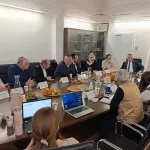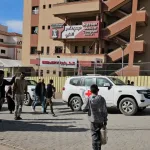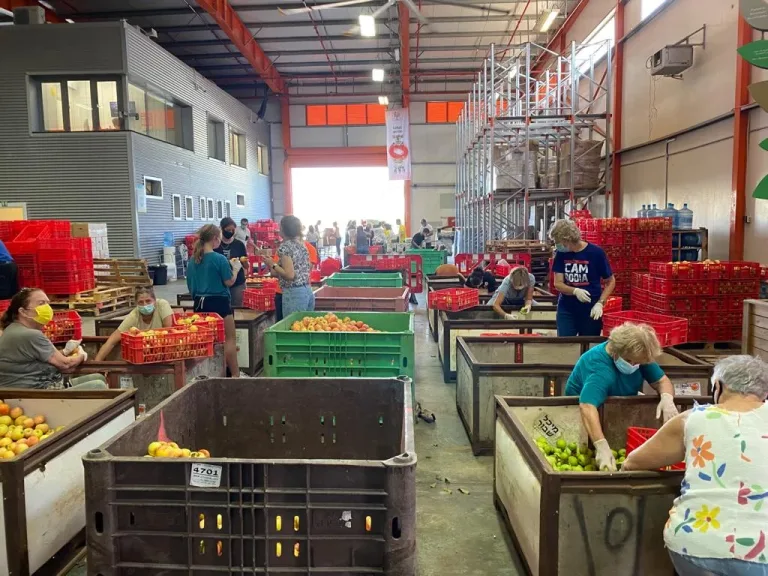The Decade Report of Leket Israel and BDO (Hebrew), in collaboration with the ministry of Environmental Protection and the Ministry of Health, is being released today, indicating that over the past decade, the Israeli economy has lost food with a cumulative value of 211 billion ₪.
Although the Israeli consumer wastes less food, registering a 13.3% decrease in per capita loss, from 300 to 260 kg per year, the rise in the cost of living and population growth ensure that the overall volume of loss remains exceptionally high.
In 2024 alone, 2.6 million tons of food were discarded in Israel, valued at 26.2 billion ₪. This quantity represents 39% of all food produced in Israel – equivalent to 1.3% of the Gross Domestic Product (GDP). In the household consumption segment alone, this constitutes a loss of 10 billion ₪, an annual cost of 10,785 ₪ per household. This occurs while approximately 1.5 million residents in Israel, representing some 485,000 households, live in conditions of food insecurity and are uncertain whether they will be able to afford proper and healthy food until the end of the month.
The scope of food loss in Israel is not only economic; it exacts a heavy environmental and health price. According to the report, the environmental cost of food loss is estimated at approximately 4.2 billion ₪ annually, which includes wasted water and land resources, pollutant emissions, and waste treatment.
Concurrently, the health cost resulting from food insecurity stands at 5.8 billion ₪ per year, approximately 4% of national health expenditures, posing increasing challenges to the healthcare system.
Since the publication of the State Comptroller’s Report in 2015, which pointed to the absence of a comprehensive policy on the matter, the Leket Israel organization has led a fundamental change in policy and public awareness. Over the past decade, the Law for the Encouragement and Rescue of Food was amended, food rescue and food security issues were integrated into the National Food Security Program, and food rescue was included in the Ministry of Welfare’s support criteria, establishing principles for inter-ministerial measurement and action.
In 2025, a governmental program for the reduction of food loss and waste was published for the first time, led by the Ministry of Environmental Protection and in collaboration with the Ministry of Agriculture. The program presents clear channels of action for addressing the challenge and, for the first time, also includes national targets for reducing loss and rescuing food. The totality of these actions is designed to stop the loss of billions of shekels and benefit the public in the middle and lower socio-economic strata who bear a very heavy financial burden.
Idit Silman, Minister of Environmental Protection: “The food loss report presents a bleak picture that must now be changed. The Ministry of Environmental Protection, in cooperation with the Ministry of Agriculture, recently published a National Program for the Reduction of Food Loss and Waste in Israel. The program outlines the path for confronting food loss in Israel and provides an environmental, socio-economic response to one of the greatest challenges facing Israel’s food systems. Food rescue is a fundamental step in building a sustainable food economy, one that will reduce the burden on households, narrow social gaps, and minimize Israel’s environmental footprint. The Ministry will continue to work toward implementing the program through budgetary anchoring and inter-ministerial and multi-sectoral cooperation for the benefit of Israel’s citizens”.
Gidi Kroch, CEO of Leket Israel: “211 billion ₪ worth of food was discarded in one decade. This is a national failure with no moral, environmental, social, or economic justification. After a decade of awareness, the time has come for action. We must stop throwing food away and start rescuing it. Leket Israel, the national food rescue organization, has proven for years that the solution exists – it is possible to rescue viable food, turn waste into a resource, and connect abundance with scarcity. For 22 years, the organization has been working with thousands of farmers, producers, retail chains, and volunteers to rescue high-quality, viable food, which is distributed to hundreds of thousands of families in Israel. According to the report’s data, every shekel invested in food rescue yields a value of 10.7 ₪ to the national economy – a cost-effective, immediate, and sustainable solution. The State must act to provide adequate funding in order to achieve the single, clear national goal: Israel without food loss”.
Dr. Moran Blaychfeld Magnazi, Director of the Nutrition Division at the Ministry of Health: “The Ministry of Health views the reduction of food loss and food rescue as highly important for confronting food insecurity and promoting healthy and sustainable nutrition. Increasing the consumption of fruits and vegetables among these populations can lead to a significant improvement in their health, and in addition to improving quality of life, also save the economy considerable costs. The Ministry is a partner in formulating the National Food Security Program and in drafting the National Outline for Food Security, and it works to reduce food waste by integrating the issue into public procurement and educational programs within local government and educational settings”.
Chen Herzog, Chief Economist at BDO and Editor of the Report: “Food loss amounting to 26 billion ₪ in the last year constitutes severe damage to food security, the cost of living, and the quality of the environment. During the war period, the Israeli economy paid a price due to the growth in the scope of food loss, primarily in the agricultural segment. The cost of food loss is ultimately passed on to the consumer, and it is one of the factors behind the approximately 15% rise in fruit and vegetable prices since the start of the war. The confrontation-line areas in the Gaza Envelope and the North are responsible for approximately 30% of agricultural output, and the economic plans for the rehabilitation of the North and South and the return of the economy to growth following the war must include an operative national policy for reducing food loss and increasing the scope of rescue.
“Since the publication of the first Food Loss Report by Leket Israel and BDO 10 years ago, the annual cost of food loss to the economy has grown by 45%, from 18 billion ₪ in 2015, to 26 billion ₪ this year. The absence of national policy and budgets for the reduction of food loss is an ongoing failure. The State Budget for 2026 must be updated to include funding for the implementation of a national food rescue program this year”.






























